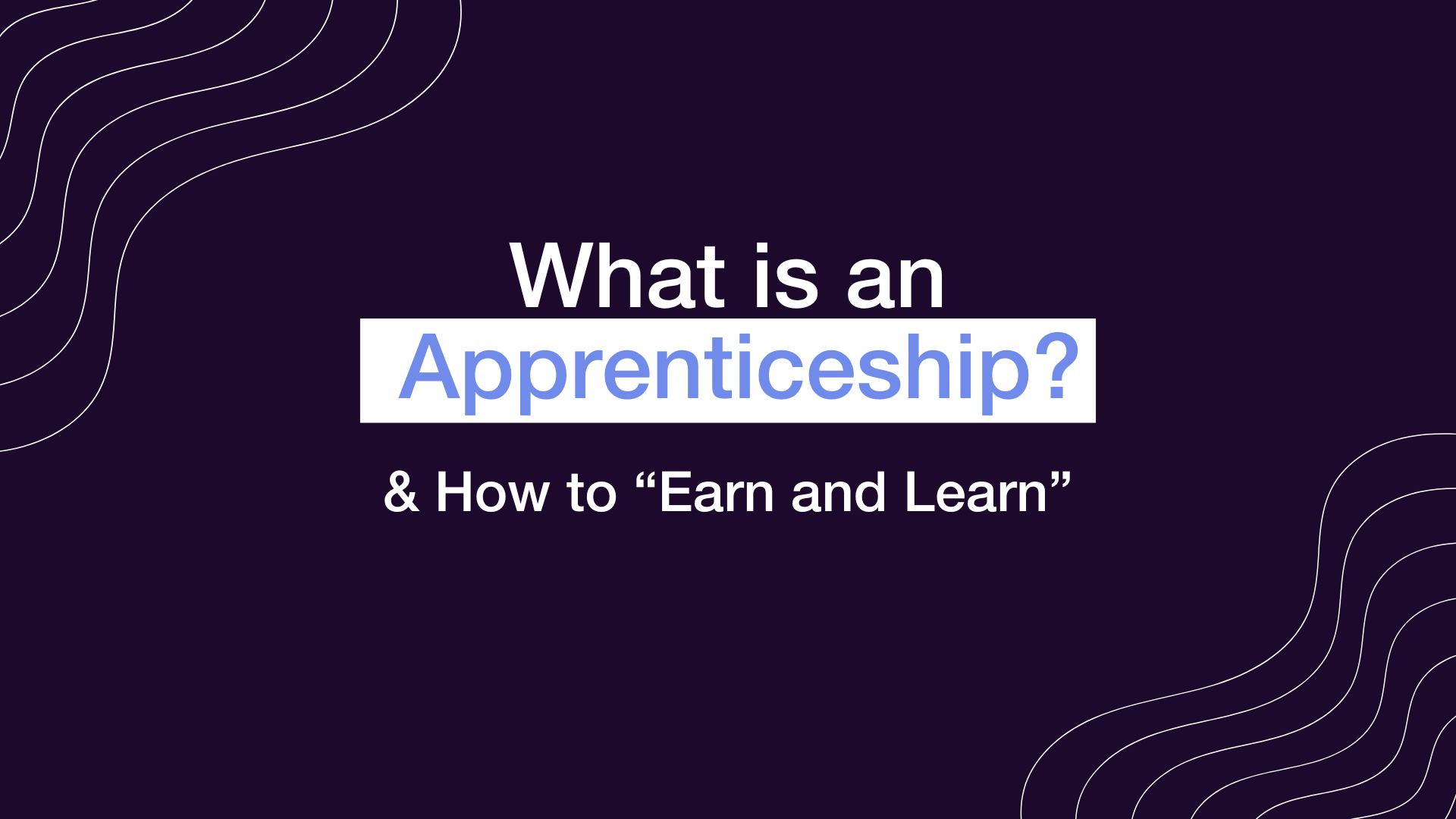Q&A with Maryland Apprenticeship Connector
In collaboration with the Maryland Apprenticeship Connector (MAC), we’re celebrating the 10th anniversary of National Apprenticeship Week (NAW) from Nov. 17-23, 2024 to highlight the existing opportunities that apprenticeship programs offer.

In this special week, we sat down in an interview with Patricia and Yvette from MAC to give you an inside scoop of what are apprenticeship programs and how you can “earn and learn.”
Patricia Meyer: Hi, I’m Patricia.
Yvette Diamond: And I’m Yvette.
Patricia: We’re here to talk about apprenticeships in Maryland. Yvette, what’s an apprenticeship?
Yvette: Well, apprenticeships have been around for decades with proven success. In several industries, apprenticeships are an “earn and learn” model, which means an employee is learning on the job while earning a living for their productivity. Included in the apprenticeship is related instruction. So the employee takes classes to further their education, and it includes the on-the-job training where they they apply those lessons in a real-world environment.
Patricia: That sounds really interesting. So what are the benefits to the apprentice?
Yvette Diamond: So they get to start their career now, not after education.
Yvette: They can be compensated while contributing to the team, and they grow their professional network to continue uncovering opportunities for growth and development all while they’re being supported to bolster their success with the high cost of education.
Now is the time for a career-minded individual to lean into apprenticeship programming so they can start their careers, earn money, get an education, and receive the support available to help them succeed.
Patricia: That sounds like an incredible opportunity for the individual. But what are the benefits to the employer?
Yvette: Well, the employer gets training and education geared specifically to their needs and their stated requirements.
They’re involved in designing the apprenticeship. They get access to a larger, untapped talent pool of ready and able individuals oftentimes unable to overcome cost and schedule challenges of traditional education pathways. They also get immediate and long-term impact on talent shortages. When they layer these programs with existing workforce development and traditional practices. Also, they get a kind of buy one, get many with fully supported team members to help drive successful integration into the workforce.
So when you hire an apprentice, they come with a full support team that fax them at no extra cost to the employer. When a business has a supply shortage or a rise in the cost of their supplies, a lot of effort goes into identifying alternative methods. But for some reason, employers seem to think they can continue practices that they have been failing for decades when it comes to recruiting and developing their talent pipelines. Now is the time to invest in your workforce, so that you and your staff are prepared for our changing economy and developing technologies.
Patricia: So, what is it that Maryland hospitals and health systems offer within this apprenticeship landscape?
Yvette: Opportunities for apprenticeships in hospitals can be clinical or non-clinical. The apprenticeship that exists are going to be different at each hospital and depends on the hospital’s needs. But here are some examples of apprenticeships around Maryland. Some hospitals offer apprenticeships in building trade occupations like carpentry, HVAC technician, industrial maintenance electrician plumber, and stationary engineer. So you’re still in the hospital environment, but you’re doing building trade occupations. Others offer non-clinical apprenticeships, occupations that are not direct care roles, including environmental care, supervisor, and biomedical engineer.
And then, lastly, the clinical occupations include community health worker, licensed practical nurse, medical assistant, patient care tech, and surgical technician. These opportunities will vary location by location throughout the state. Take a look at the information at JoinMdHealth.org to learn more about which hospitals provide these opportunities.
Patricia: My last question for you today. What are the qualifications or skills needed to apply for healthcare apprenticeships?
Yvette: Like all jobs, the qualifications will vary, depending on the apprenticeship. Some hospitals offer apprenticeships to existing employees for upscaling opportunities, others partner with community colleges or local agencies to identify candidates for apprenticeship opportunities.
If you’re interested in finding out more about apprenticeship opportunities in your area or starting an apprenticeship. We recommend starting at macworkforce.org.
From there, you will be connected to your local support team, including workforce boards, Department of Labor, community college, your local school system, and so much more.
When is Apprenticeship Week 2024?
November 17-24, 2024
National Apprenticeship Day in 2025 – April 30, according to apprenticeships.gov.